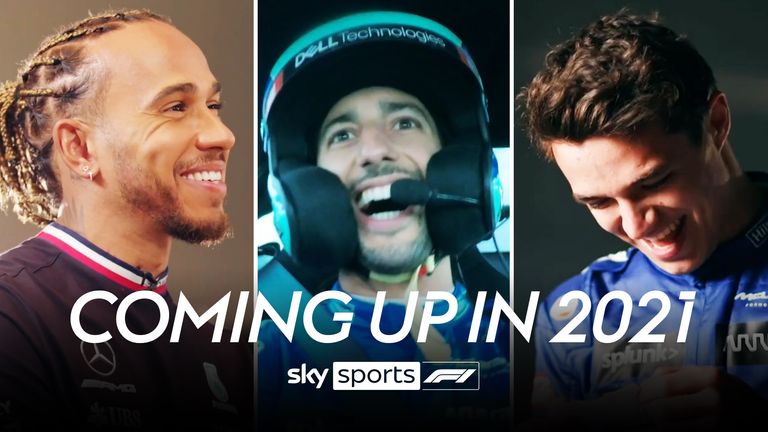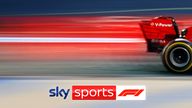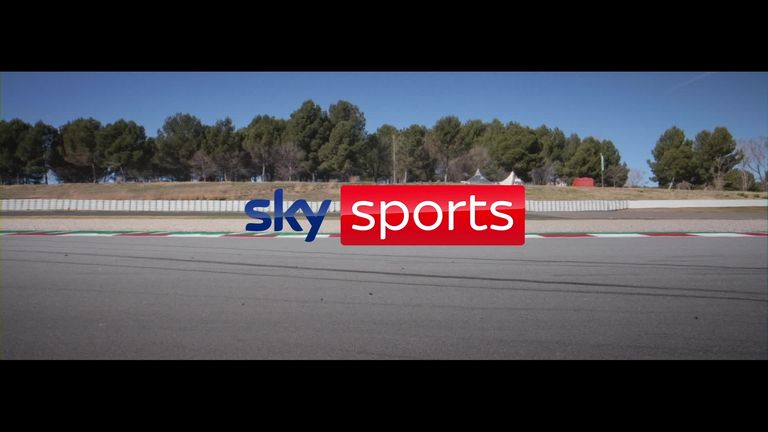
Mark Hughes
F1 Expert
Sebastian Vettel and Fernando Alonso: Assessing the prospects for 2021 as F1 icons start new eras
Formula 1 expert Mark Hughes looks ahead to big seasons for Sebastian Vettel and Fernando Alonso as the multiple world champions bid to rediscover old form with new teams; watch the Bahrain Grand Prix live only on Sky Sports F1 on March 26-28
Last Updated: 24/03/21 2:16pm
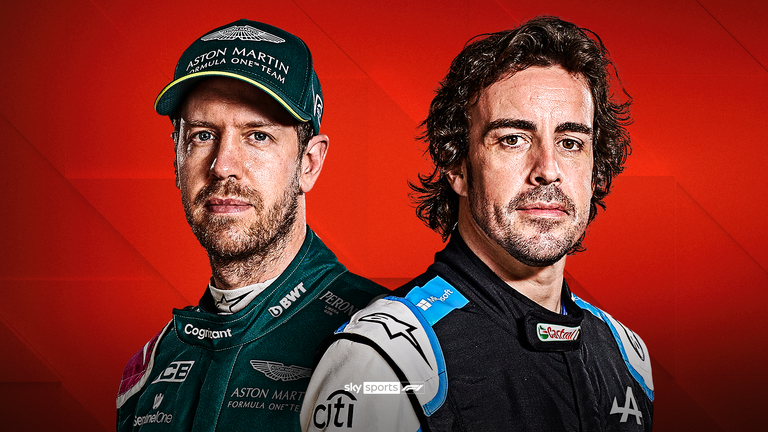
There's so much intrigue ahead of this season but surely among the most fascinating surrounds the prospects of the two veteran multiple champions Fernando Alonso and Sebastian Vettel and how they might answer the question marks around them.
Alonso comes into the season with Alpine at 39 years old having been out of F1 for two years. His last grand prix victory was eight years ago.
Thirty-three-year-old Vettel arrives at his new Aston Martin team having been dropped by Ferrari and off the back of a disastrous season when he was thoroughly outperformed by his younger team-mate Charles Leclerc.
Their careers are somewhat intertwined - Vettel was recruited by Ferrari as Alonso's replacement, rather catching out Alonso, who was negotiating unaware that the team was deliberately slowing the process in order to find out whether or not Vettel's release clause from Red Bull would be triggered.
In the end it was, of course, and Alonso began his fruitless second spell at McLaren.

The man who recruited both Alonso and Vettel to Ferrari, Luca di Montezemolo, later recalled: "Fernando was a fantastic driver, maybe even the best. But in his comments he was giving the impression that if he was in a Mercedes he would be winning every race and that had a very demotivating effect on the team.
"I began to think back to what Michael [Schumacher] had always said about Vettel - that he was the guy we should be looking at."
By the time Vettel arrived there, Montezemolo was gone.
What went wrong for Vettel at Ferrari?
The legend of Schumacher - Vettel's hero - had always cast a long shadow at Ferrari. In his mind, Vettel was recreating the structure Michael had enjoyed there, with him at the centre of everything, giving direction.
But the team Vettel joined did not have the supportive structure Schumacher had benefitted from.
Michael been recruited on his own terms in 1996 by a team in trouble and brought with him his own technical brains trust in Ross Brawn and Rory Byrne. Brawn, Schumacher and team boss Jean Todt formed a unit who almost under oath made a vow to each other not to let their efforts be undermined by the team's notorious politics. They came to form an impenetrable shield and operated together with openness and total trust. Because each of them was wonderfully good at their job and Byrne was one of the most creative technical brains around, they eventually broke all records.
Vettel didn't join anything like that in 2015.
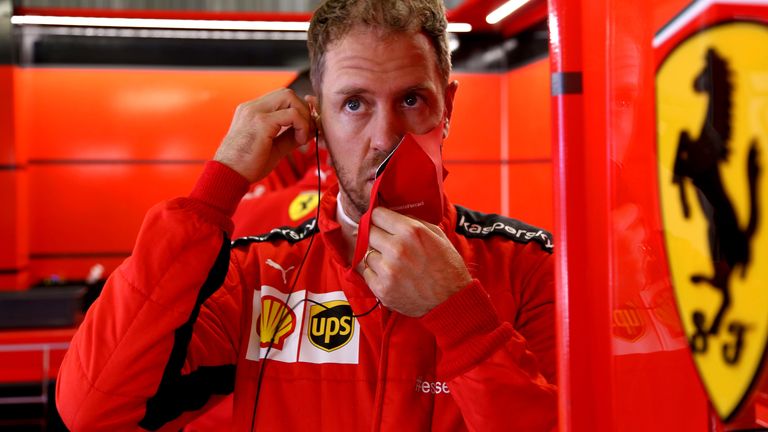
The man who'd recruited him had been ousted by a tough, aggressive new boss Sergio Marchionne, who had his own vision of how things would be - and it didn't include a driver being anything more than an employee. There was no equivalent of Brawn or Todt, no protective shield, no place at the head of the table.
Instead, Vettel was implicitly being challenged to prove he was worthy of the role of lead driver - and that was very much part of Marchionne's plan of putting Ferrari junior driver Leclerc alongside him.
In the automotive industry, Marchionne came from you benchmarked things. He wanted to benchmark Vettel.
It was probably the worst possible way of getting the most from that particular person. He never did get to see how it panned out, but it's difficult not to believe it had a negative effect on Vettel's performances, so giving a certain self-fulfilling quality to the late Marchionne's plan.
Vettel 'perfectly poised' to re-emerge at Aston Martin
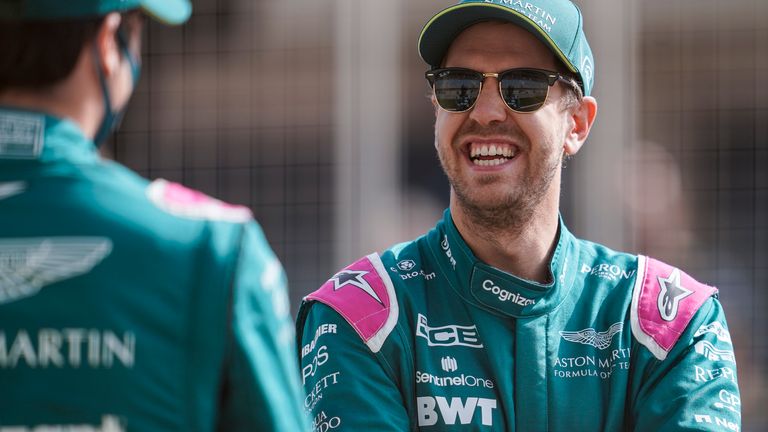
Vettel comes to Aston Martin off the back of that bruising experience determined to prove to himself and the world that the Vettel of last year was not an accurate reading of his level.
At 33 there's no reason to suppose his physical skills have actually dimmed. It was as recently as Suzuka 2019 when he set a resounding pole position, eclipsing Leclerc's lap.
He should be amply motivated and in the perfect environment - an ambitious young team looking to make its mark and with him as the experienced head for guidance. On paper everything seems perfectly poised to see the re-emergence of the old, fast Vettel.
Will Alonso be the same after F1 absence?

There has never been any serious doubt about Alonso's level behind the wheel. His ferocious competitive spirit and immense talent never dimmed even during the four seasons of sub-par McLarens 2015-18. And if Stoffel Vandoorne's recruitment in '17 as Jenson Button's replacement was ever intended to 'benchmark' Alonso, he resoundingly answered that question by comprehensively out-performing the highly-rated young GP2 champion.
But two years out of F1 and nudging 40 years old, will he be the same? The signs at Abu Dhabi last year suggested so.
After monstering his 2005 Renault V10 around the track for what were supposed to be 'demonstration' laps on demo tyres, he was nudging current Q1 level lap times. In post-race testing he lapped the then-current car marginally faster than it had been qualified by either Esteban Ocon or Daniel Ricciardo.
So the signs are good regarding his own performance level. The questions are probably more to do with how competitive the new Alpine might be and how he might react if it falls short of his expectations.
Roll on the Bahrain Grand Prix where we begin to find out the answers.

